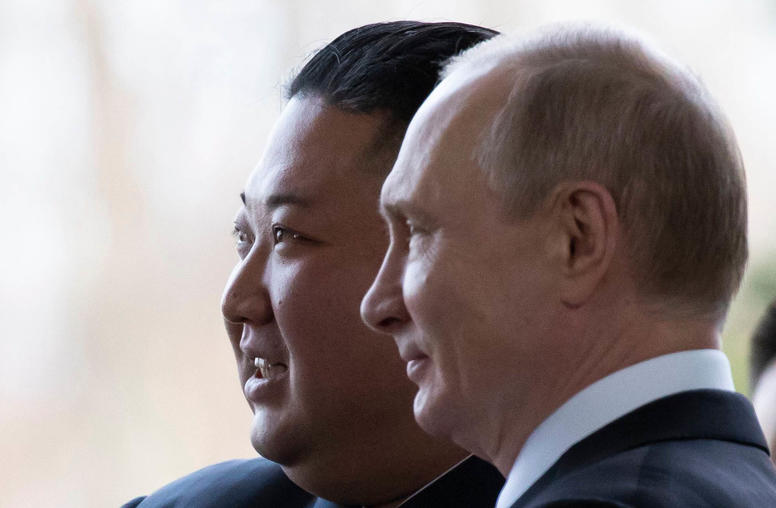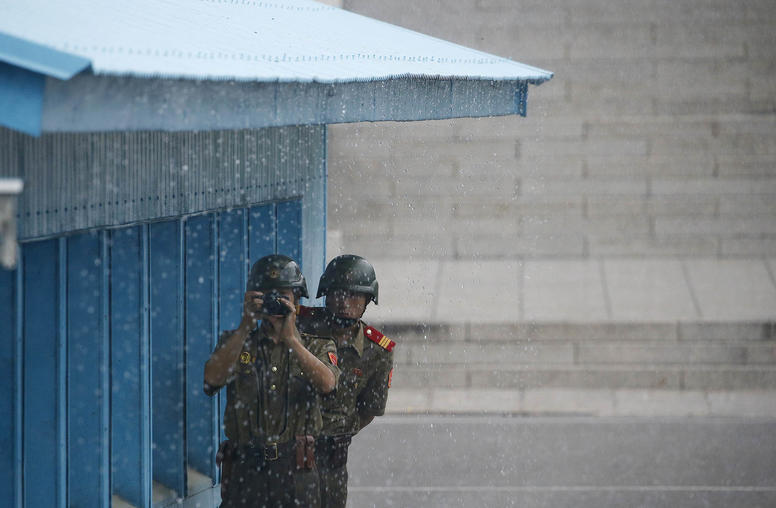The 2009 'New DPRK Revolutionary Upsurge'—A Blast from the Past or a New Path?
A public event co-sponsored by the U.S. Institute of Peace and the Woodrow Wilson International Center for Scholars' North Korea International Documentation Project: This event has already taken place.
North Korea's 2009 New Year's editorial outlined plans for a "New Revolutionary Upsurge" to build "a great, prosperous and powerful nation" (kangsong taeguk). Drawing a direct parallel to Kim Il-sung's Chollima Movement of the late 1950s, Kim Jong-il is reported to have launched his new revolutionary upsurge in Kangson—the birthplace of the Chollima Movement—on December 24, 2008. It was heralded as a turning point in the development of the Party and revolution much like when Kim Il-sung set the Chollima Movement in motion in December 1956. While the Chollima upsurge was credited for building on the post-war debris "a strong country independent in politics, self-supporting in the economy and self-reliant in national defence," it remains to be seen where the Kim Jong-il regime will be able to draw on the resources required to "open the gate to a thriving nation in 2012."
The USIP-Woodrow Wilson Center conference will address the following sets of core questions:
(1) Context Analysis: What were the specific objectives of the Chollima Movement — the cited model for the "New Revolutionary Upsurge" highlighted in the 2009 New Year's editorial? What was the role of the Chollima Movement in regime solidification for Kim Il-sung?
(2) Capabilities Analysis: Where did North Korea get the resources to carry out the Chollima Movement goals? Where would North Korea get resources (funding and material) required for implementing the 2009 "New Revolutionary Upsurge"?
Agenda
- Session 1:
Insights on the Chollima Movement from Archival Material
(James Person & Bernd Schaefer, Wilson Center's North Korea International Documentation Project) - Session 2:
Relevance of the Chollima Movement to the 2009 "New DPRK Revolutionary Upsurge"—Can Regime Solidification in this Manner be Replicated?
(John Park, USIP's Korea Working Group) - Session 3:
Panel Discussant
(Charles Armstrong, Columbia University's Center for Korean Studies) - Session 4:
Q&A
Archived Audio
To listen to audio or to view video, please click on the links provided below. You also can right click on the links and choose "Save Target As" or "Download Linked File." This will save the file to your computer and then allow you to play it in your media player directly. More Audio Help.
- Listen to the audio from this event.
02:32:04 - 28.5MB
Speakers
- Charles Armstrong
Director, Columbia University's Center for Korean Studies - John Park
Director, Korea Working Group, U.S. Institute of Peace - James Person
Program Associate, Wilson Center's North Korea International Documentation Project - Bernd Schaefer
Senior Research Scholar, Wilson Center's North Korea International Documentation Project - Abiodun Williams, Moderator
Vice President, Center for Conflict Analysis and Prevention, U.S. Institute of Peace



